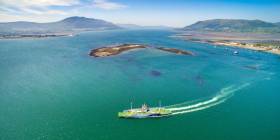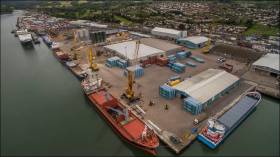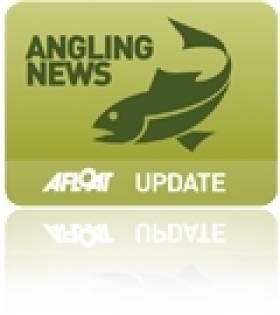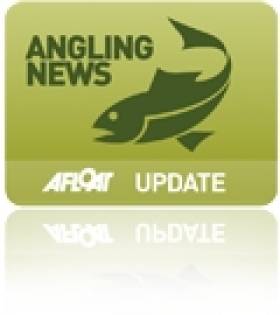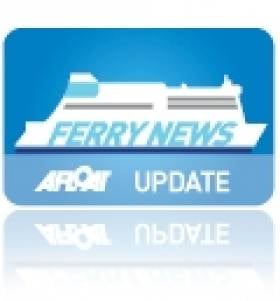Displaying items by tag: crossborder
Operators of the Carlingford Lough Ferry have vowed to keep on sailing despite the potential impact of Brexit, writes The Talk of the Town.
With the possibility of the border between the United Kingdom and Europe being in the middle of the Irish Sea that poses a potential threat for the business given it crosses several times daily from Greenore to Greencastle and vice versa.
Run by Frazer Ferries, the Carlingford Lough Ferry has proven to be hugely popular with both locals and tourists since its maiden voyage in July 2017.
While the threat of Brexit looms large over the business, a post on their Facebook page last night outlined how the company vows to “keep on sailing.”
For further reading click here.
ESPO Asks to Recognise Cross-Border Dimension of EU Ports & Strengthen Maritime Connectivity
#Ports&Shipping - Over the next decade the investment needs of European ports amounts to 48 billion EUR, according to a report by the European Sea Ports Organisation (ESPO).
Many port investments score high in creating societal value but the return on investment for the investor, the port managing body, is often low and slow. For these investments, external funding is needed. Ports have only been able to obtain 4% of the CEF transport budget over the last three years. These are the main results from the Study ESPO launched in spring 2018 in preparation of the Connecting Europe facility II proposal which came out on 6 June 2018.
ESPO welcomes the CEF II proposal and appreciates the efforts that have been made to further optimise and ensure the continuation of this important financial instrument for transport.
“ESPO is fully recognising the importance and benefits of the Connecting Europe Facility; we should use the experience of the past three years to further optimise this instrument; we count on the European Parliament and the Council to safeguard the budget proposed, which is a real minimum. Given their important role as nodes of transport, energy, industry and blue economy ports deserve more than the 4% share they obtained over the last three years. Concretely we believe that ports and the maritime dimension should be better recognised under the cross-border priority. Seaports have the potential to link any number of Member States through maritime transport, as well as to link the sea with a wide hinterland and economic area that in most circumstances exceeds the national borders. They are by nature cross-border and should be recognised in that respect”, says ESPO’s Secretary General Isabelle Ryckbost.
Based on the outcome of the ESPO study, ESPO formulated concrete recommendations and suggestions in its position paper to further optimise the Commission proposal.
ESPO asks the Parliament and Council to:
- ensure that an increased share of the CEF budget is accessible to ports, reflecting their essential role in the European Transport network;
- recognise the cross-border nature of ports and the maritime cross-border dimension which has the potential to link a port not only with their neighbours but with all other maritime Member States;
- re-integrate the currently pre-identified port and MoS projects in the Annex of pre-identified sections of the new proposal;
- put more emphasis on the decarbonisation investments to be made;
- better define the military mobility budget share, which will receive 1 on 5 EUR of the CEF transport budget and to prioritise the transport policy priorities in defining the dual-use;
- use the military mobility budget to enhance the resilience of Europe’s infrastructure and, in particular its port infrastructure, to cyber security threats and ensure that ports can play their vital role as part of the emergency supply chain;
- exempt projects with a limited impact on the national transport network from Member State endorsement;
- highlight the importance of the maritime connections of the EU with its neighbouring countries;
- ensure optimal connectivity of Ireland to mainland Europe in the context of Brexit;
- foresee a review mechanism following the review of the TEN-T guidelines in 2023 and the outcome of the Brexit negotiations.
The proposal is currently under discussion in the Parliament and the Council. Last week, the EP-TRAN rapporteurs, Pavel Telička (ALDE, CZ) and Marian-Jean Marinescu (EPP, RO), presented their draft report (read or download) in the TRAN Committee. The deadline for amendments is 13 September.
Minister Marvels at Young Anglers in Fly Fishing Worlds
#Angling - Minister of State Fergus O'Dowd gave some words of encouragement ahead of the World Youth Fly Fishing Championships taking place this week till 26 July in venues across Louth, Monaghan, Meath, Tyrone and Antrim.
The event will help to showcase the wonderful angling amenities on the island of Ireland, And with competitors all in the 14-18 age bracket, it will also promote the wonderful sport of recreational angling to young people.
Minister Fergus O'Dowd, who attended the launch of the event, encouraged the youthful competitors and marvelled at their ability to "take challenges in their stride at such a young age and compete wholeheartedly and sportingly".
The minister also acknowledged the important economic and social impact angling has on rural communities, bringing much needed revenue and jobs.
Inland Fisheries Ireland (IFI) chief Dr Ciaran Byrne added that the national fisheries body is "delighted to be the main sponsor of this prestigious event.
"IFI, through its sponsorship scheme, aims to promote youth angling but also ensure best practice, and in that regard IFI is providing the biosecurity measures for this competition."
Along with IFI, the Loughs Agency, DCAL, Fáilte Ireland and local businesses are supporting the great work of the organising committee under the guidance of the Leinster and Ulster councils of the Trout Angling Federation of Ireland. The competition is a cross-border initiative run under the regulation of FIPS Mouche.
Salmon Surplus Sure to Attract Anglers to Lough Melvin
#Angling - Anglers on both sides of the border will be looking forward to a salmon bonanza on Lough Melvin when it opens for fishing on Friday 1 February, according to the Impartial Reporter.
The Fermanagh lake has been bucking the trend of declining fish stocks in Northern Ireland's inland waterways, which have prompted concerns that the species has been reduced to 'dodo levels'.
Despite the news last October that just three out of every 100 wild salmon returned to Northern Ireland's rivers in 2011, fishery experts believe that Lough Melvin and the River Downes that connects it to the sea have a surplus of salmon - providing valuable sport (and dinner) for angling locals and tourists alike.
Even so, anglers in both jurisdictions of the border-straddling fishery will have to abide by their respective legislation, which provides for a strict tagging and recording system.
On the Northern Ireland side, anglers are issued one tag at a time up to a total of three for the first three months of the season, with a maximum of 10 issued for any single angler on Lough Melvin by the close of fishing on 30 September.
The Impartial Reporter has much more on the story HERE.
#FERRY NEWS - A cross-border project to develop ferry services for island and remote communities of the Irish and Scottish coastlines has received funding in the sixth round of the European Regional Development Fund (EDRF).
A grant of £450,000 (€540,000) has been allocated to procure the world's first ever hybrid RORO ferry for operation in Scotland, following the completion of the INTERREG funded Small Ferries Project.
The project - a cross-border partnership between Caledonian Maritime Assets Limited and administrations in Ireland and Northern Ireland - produced common designs and procurement strategies for a fleet of small ferries which could be used to serve remote coastal communities.
As previously reported on Afloat.ie, five Scottish coastal routes (and three Irish routes) were examined as part of the Small Ferries Project report published in September last year.
Arising from this, Scotland will see the next step in the project by hosting the world’s first hybrid RORO ferry, designed for use on short crossing routes around the Clyde esturary and Hebrides.
The EDRF funding will also be used to develop the corresponding shore infrastructure to enable the ferry to recharge in port.
The first vessel is expected to enter service in Spring 2013.


























